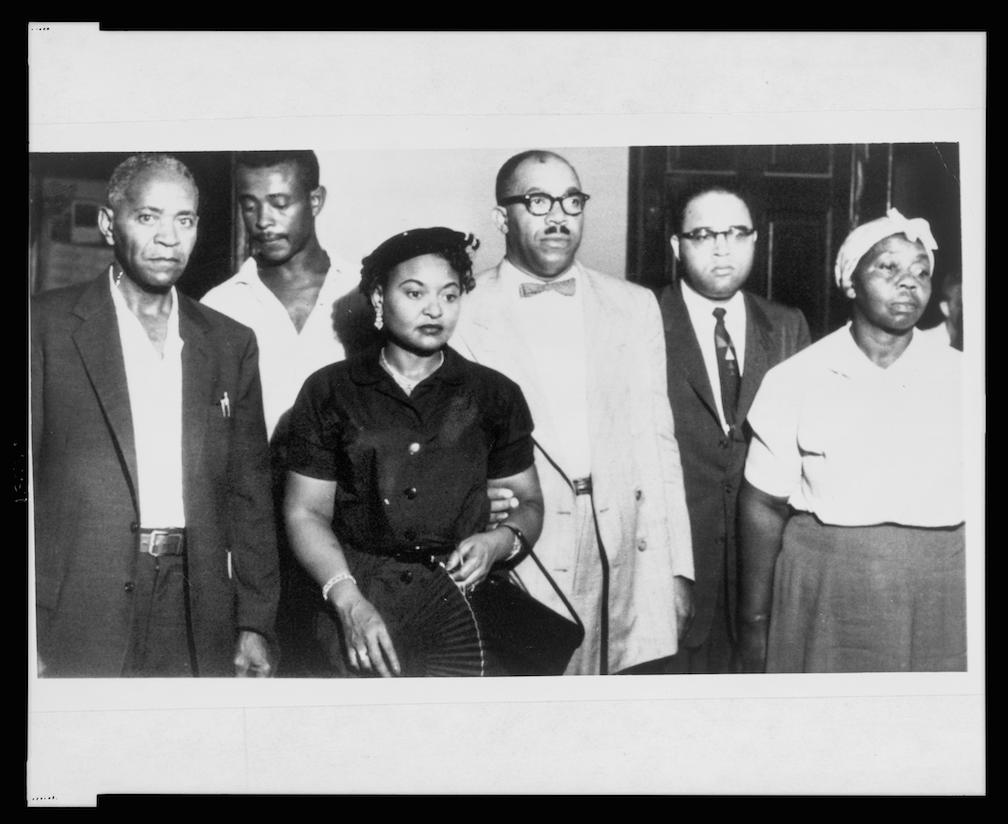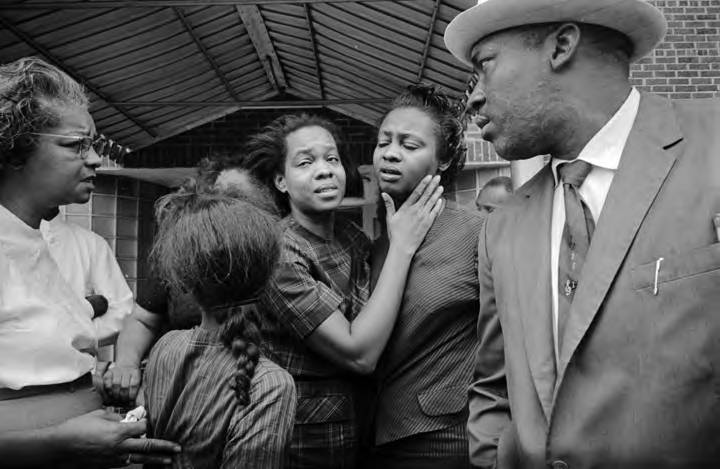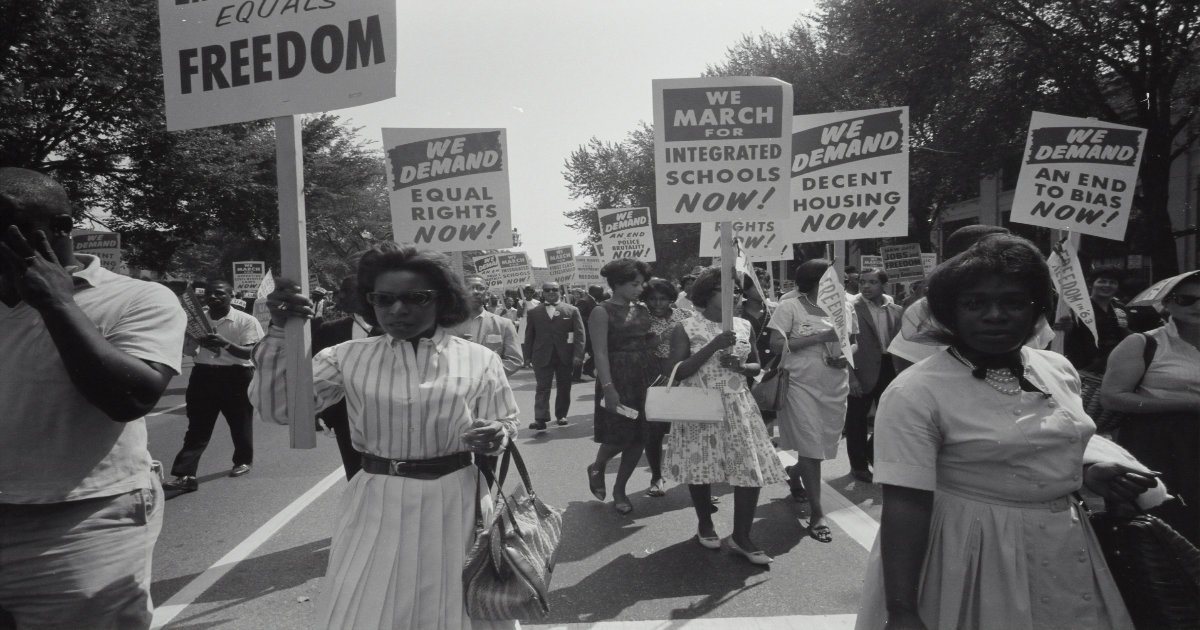The Civil Rights Movement brought about heroes who were cast into that position by tragedy, not by choice. Two of those heroes who inspired others and transformed the movement were mothers: Mamie Till-Mobley, the mother of Emmett Till, and Maxine McNair, the mother of Denise McNair.
As you recall, Emmett was the 14-year-old boy murdered near Money, Mississippi, on August 28, 1955, after he was accused of whistling at a white woman who worked at a grocery store. A few days later, her husband and his step brother took Emmett from his uncle’s house and brutally beat him, gouged out his eye, shot him in the head, and tied him to a cotton gin, which was thrown into the Tallahatchie River. After Emmett was taken, his uncle, Mose Wright, called Mamie, and the family, fearing the worst, went to the news media and reported Emmett missing. This mobilized a search in the public eye. When Emmett was found, his face was unrecognizable, and his uncle could only identify the body by the ring Emmett had on his finger, which had belonged to Emmett’s father.
Local authorities in Money tried to bury the boy hastily, covering up the brutality, but Mamie would not allow that to happen. She insisted that Emmett’s body be brought home to Chicago for burial. When the casket arrived, it was sealed with the seal of the state of Mississippi, and even though both funeral parlors and Mississippi state officials had agreed that the casket would remain sealed, Mamie insisted it be opened so people could see what “they did to my boy.” Over 50,000 people walked past the casket, and Mamie allowed Jet Magazine to take photos, which were later shown in Ebony Magazine and the Chicago Public Defender.
A few months later, Emmett’s murderers were found not guilty by an all-white jury that said the state had not proven the body was Emmett’s body. Even though she was heartsick, Mamie agreed to visit cities in the U.S. with the NAACP, telling audiences about Emmett, brutality toward Black men, and the injustice of the legal system toward African Americans. Mamie’s decisions to open the casket and speak about the brutality are credited with nudging the Black community toward the Civil Rights Movement. A little over three months after Emmett’s murder, Rosa Parks said that she thought about Emmett before she decided to stay in her seat on the bus. And shortly after that, Martin Luther King, Jr., called for a city-wide bus boycott.
Eleven-year-old Denise McNair was also brutally murdered because of hatred and racism. She was the youngest of four children who died on September 15, 1963, at Birmingham’s 16th Street Baptist Church when dynamite planted by four Ku Klux Klan members exploded. Klan members were upset that activists had convinced the city to begin integrating the schools, and 16th Street Baptist Church had been used in the past by Martin Luther King, Jr. as a place to speak and inspire peaceful marches. Dr. King officiated at the funeral for Denise and two of the other girls, and eight thousand people gathered outside the church for the funeral. However, not one city official attended. The image of this horrific crime sparked outrage across America and led to passage of the Civil Rights Act of 1964 by Congress.
Even though an FBI investigation revealed the four men responsible for the bombing, J. Edgar Hoover stopped the investigation in 1966. In 1977, Alabama Attorney General Bill Baxley reopened the case and arrested one of the men Robert Chambliss, who was later convicted and sentenced to life in prison. Mr. Baxley said that he grew up knowing about the case, and the young girls were children when he was a child. Two other men were convicted years later in 2000 and 2002. They were both sentenced to life in prison. The fourth man who participated in the bombing died in 1994 before being brought to trial.
Throughout the remainder of their lives, Mamie and Maxine continued their mission to educate the public about the consequences of hatred and racism. Mamie taught special education in Chicago Public Schools for 23 years and founded the Emmett Till Players who tour the U.S., presenting the speeches of Martin Luther King, Jr. She also co-authored Death of Innocence: The Story of the Hate Crime That Changed America, and she discussed the case with Devery Anderson who wrote a book about Emmett that was made into a six-hour miniseries documentary: Emmett Till: The Murder That Shocked the World and Propelled the Civil Rights Movement. Mamie’s fight for justice can be seen in the TV series Women of the Movement, which aired this past January and consists of six episodes.
Maxine developed social justice curriculum for school children and spoke about the horrific day when her daughter and three other young girls died. Maxine was a teacher for 30 years in the Birmingham Public Schools and was described by the mayor of Birmingham as “a matriarch of social justice.” When Spike Lee made the 1997 documentary, 4 Little Girls, Maxine appeared as herself in the documentary. She raised two other daughters who also speak about social justice and what happened to their sister.
Both Mamie and Maxine devoted their lives to civil rights and social justice, and as Maxine McNair said in an interview, They “paid the extreme sacrifice” for the civil rights that have been achieved and still need to be achieved.



